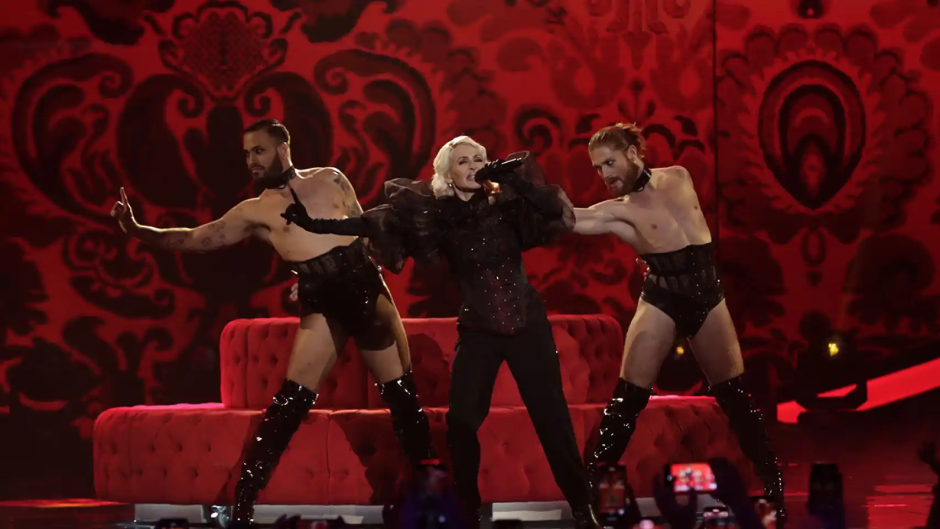Spanish Christians lament country’s misogynist Eurovision song: “Our girls will sing it at school”
“From court rulings and testimonies of women victims of violence, we know that vixen is a term used by abusers to describe women”, says Asun Quintana, from the evangelical feminist group Seneca Falls, in Madrid.
MADRID · 08 FEBRUARY 2024 · 10:16 CET

The song that will represent Spain at Eurovision 2024 in Mälmo (Sweden) has caused a debate about what female empowerment means in practice.
Artist Nebulossa, unknown to the public until now, won the nomination after the support of the jury and the audience with the song Zorra (Vixen), a denigrating term that in Spanish refers to prostitutes.
The singer, aged 55, described the song as a vindication of all women who are “criticised in every step they take. The song, heavily promoted by the national public television RTVE as a “freeing and empowering message”, had 3 million views in the 48 hours after winning the nomination.
The chorus of Zorra says, according to its official translation into English: “I’m in a good place now (zorra, zorra), Rebuilt from the inside out (zorra, zorra), And that vixen you were so scared of, She’s been empowering herself, And now she’s a picture-perfect vixen (zorra, zorra, zorra)”
"I'm in a good place now (Zorra, zorra, zorra)
Rebuilt from the inside out (Zorra, zorra, zorra)"
Así es la traducción de #Zorra de @Nebulossa_of en inglés.
https://t.co/qEMI4A0sW1 pic.twitter.com/oWVywGegm8— Eurovisión RTVE (@eurovision_tve) February 7, 2024
Some artists and feminist activists criticised on social media what they described as “vulgar” language that promoted sexist stereotypes embedded in the Spanish culture.
Furthermore, some language experts wondered why the Spanish Eurovision organisation translated the word zorra as “vixen” when the more natural translation would have been other terms like “bitch”, “foxy” or “slut”.
But many others, including Spain’s president, Pedro Sánchez, celebrated the song. “Feminism is not only fair, it’s fun”, said the head of government on social media. “This kind of provocation must necessarily come from the culture”.
“A sexist term coined for centuries”
Among those who felt “sad and indignant” was Asun Quintana, an evangelical pastor in Madrid and representative of the evangelical feminist group Seneca Falls.
“Undoubtedly, and categorically, we are against the song that is going to represent Spain at Eurovision”, Quintana wrote in an opinion article on Protestante Digital. “The word vixen is a sexist and misogynist term, coined for centuries, which is used with contempt and is equivalent to prostitute. The term has nothing to do with the masculine form fox, which in Spanish is simply an animal or a cunning person”.
Quintana, who trains evangelical Christians in Spain in issues like equality between men and women and raises awareness about gender-based violence, underlined that, “from court rulings and from many testimonies of women victims of violence, we know that vixen is a term used by abusers to describe women. The song extols a term that is a cause of violence and humiliation for women, and repeats it ad nauseam, 45 times, in a euphoric and festive manner”.
The influence on girls and teenagers
The evangelical pastor lamented that “we will hear our girls and teenagers sing the song and make it their own. They will repeat it in schools and institutes, at home (…) The fact that a public broadcaster like RTVE makes it its own will have an even greater influence”.
A video posted on social media X shows the audience at the Benidorm Fest where Zorra was the winner clearly expressing their support for the song:
Así se ha vivido el triunfo de @Nebulossa_of en el #BenidormFestFinal pic.twitter.com/AD1h4Airvm— Benidorm Fest (@BenidormFestTVE) February 3, 2024
On its website, the national television said the song was very successful on platforms like Spotify, where it peaked as the third most popular song. A tv host addressed critics by saying that “whoever doesn’t understand the song has a lot of thinking to do”.
“A pseudo-feminism that seeks to deconstruct the good foundations of the human being”
But for Asun Quintana, who also leads the Spanish Evangelical Alliance Working Group on Women and Society, the impact of such products is “the fruit of a pseudo-feminism that seeks to deconstruct the good and basic foundations of the human being. Far from giving women freedom, this concept enslaves them more, denigrates them, tramples on their dignity and their image as a woman. It calls freedom what is oppression”.
The Spanish Eurovision song also implicitly “normalises prostitution”, a reality in Spain that has been closely linked for decades to the sexual exploitation of migrant women. “Prostitution is violence against women, as stated in the 2014 Istanbul Convention”, says Asun Quintana, “we therefore speak out in favour of the abolition of prostitution and other forms of selling and exploiting women and girls”.
“In the face of this tsunami of culture that wants to deconstruct everything established, the little good that human beings preserve as a glimpse of our Creator, I believe that we cannot remain silent as women and as Christians”, she said, because “while some have a great time proudly repeating the term vixen, others continue to kill women they insult with the same word”.
Spain's nomination for the 2024 contest strakly contrasts with other Spanish Eurovision songs like Tu canción (2018), a romantic ballad composed by evangelical Christians.
One more year
Learn all about our #OneMoreYearEF campaign here (English).
Published in: Evangelical Focus - life & tech - Spanish Christians lament country’s misogynist Eurovision song: “Our girls will sing it at school”
